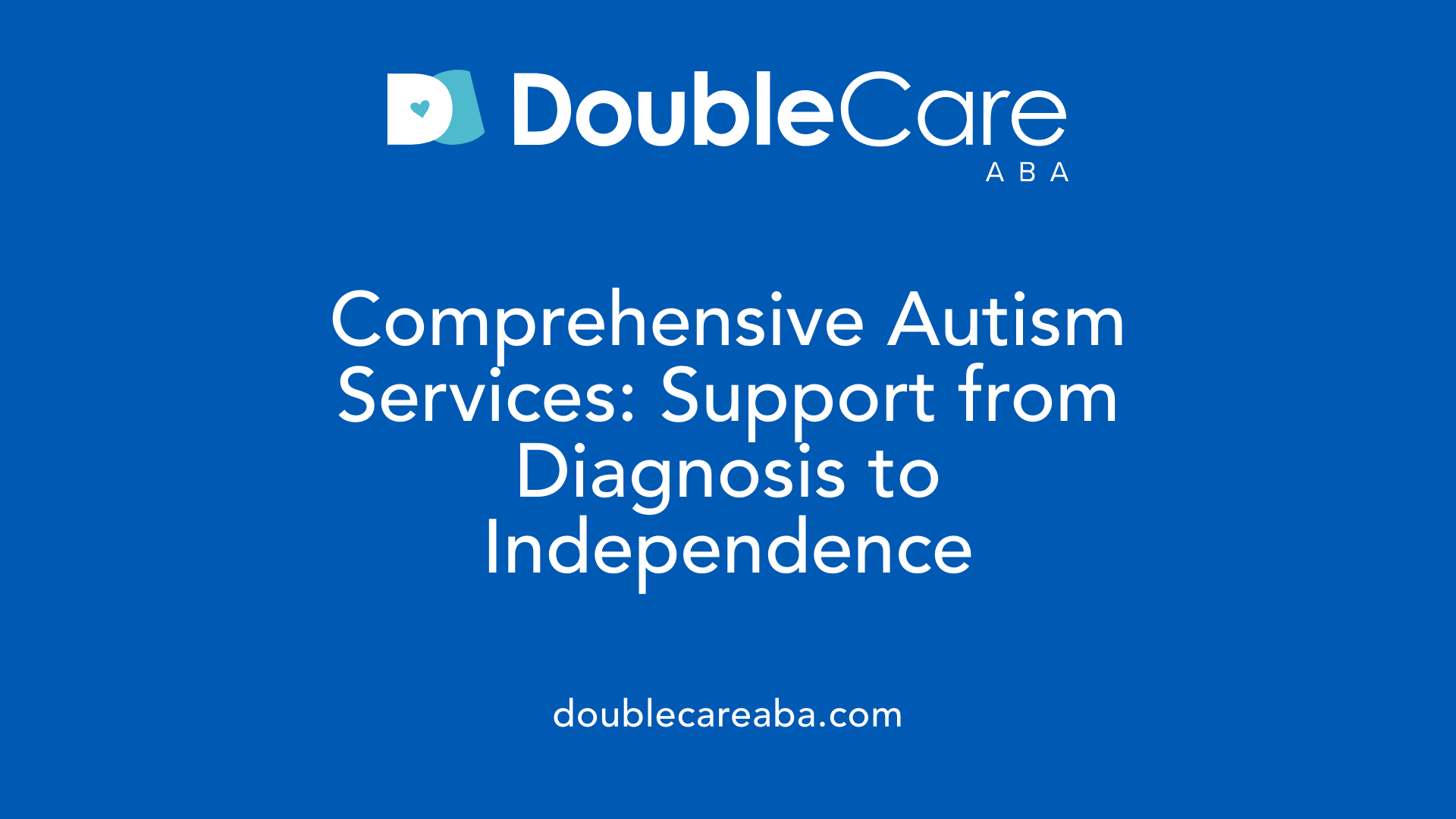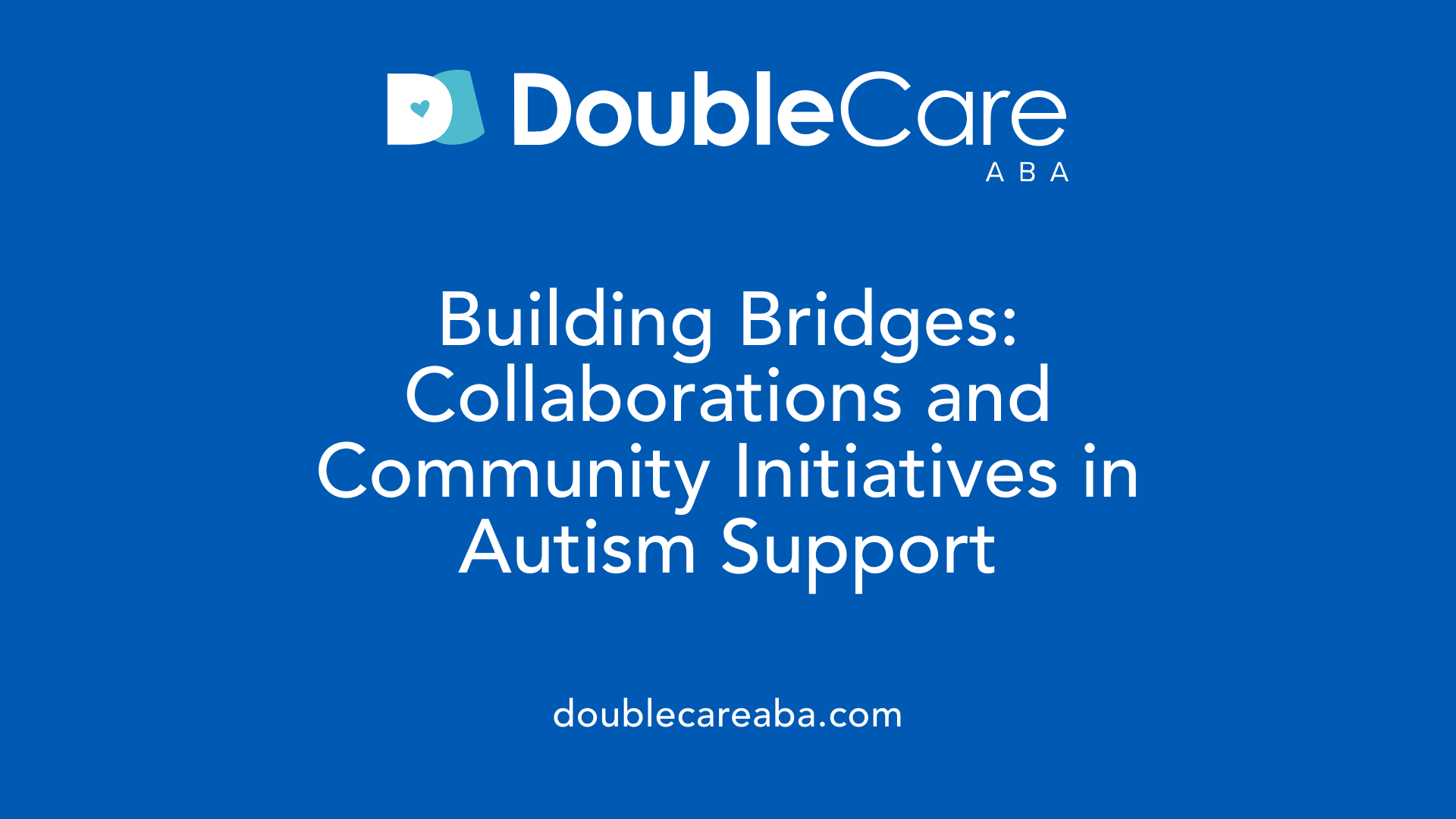Introduction to Autism Society of Indiana
The Autism Society of Indiana (ASI) is a dedicated non-profit organization focused on improving the lives of individuals with autism spectrum disorder (ASD) and their families throughout the state. With a broad mission encompassing advocacy, education, support, and public awareness, ASI offers a comprehensive range of services tailored to meet the diverse needs of the autism community across all 92 Indiana counties. This article explores the organization's work, its approach to therapies like Applied Behavior Analysis (ABA), and the resources it provides to foster independence and inclusion.
Understanding Applied Behavior Analysis (ABA) Therapy

What is Applied Behavior Analysis (ABA) Therapy?
Applied Behavior Analysis (ABA) therapy is a scientifically supported method that applies learning and behavioral principles to help individuals improve specific skills and diminish challenging behaviors. This approach is commonly used for people with autism spectrum disorder and is tailored to individual needs through personalized programs managed by trained specialists.
Goals and Methods Used in ABA Therapy
The primary goal of ABA therapy is to enable individuals to increase independence and improve their quality of life. It focuses on enhancing communication, social interaction, academic skills, and daily living abilities. Methods include positive reinforcement to encourage desirable behaviors, as well as analyzing what happens before and after behaviors to understand and modify them effectively.
ABA employs a variety of teaching techniques, including naturalistic approaches that make learning part of everyday situations. The therapy is typically delivered intensively and flexibly, matching the unique needs of each person receiving treatment. Extensive research supports ABA’s effectiveness in helping many people with autism lead fuller and more successful lives.
The Benefits of ABA Therapy for Individuals with Autism
How does ABA therapy benefit individuals with autism?
Applied Behavior Analysis (ABA) therapy offers a scientifically supported method tailored to individuals with autism. Through positive reinforcement and custom strategies, ABA helps develop a broad spectrum of skills, ranging from communication to academic performance.
Early intervention using ABA is especially valuable. It teaches foundational life skills such as dressing, toileting, and eating, which are crucial for fostering independence. As individuals progress, ABA also enhances social understanding and emotional regulation, enabling them to navigate social interactions and real-world situations more successfully.
With its personalized approach, ABA therapy nurtures strengths and interests, making learning engaging and more effective. The improvement in these areas collectively boosts independence and overall quality of life.
In summary, ABA therapy is a powerful tool that supports meaningful developmental gains for individuals with autism, helping them grow into more self-sufficient and confident members of their communities.
Qualified Professionals Delivering ABA Therapy
Who provides ABA therapy and what qualifications should they have?
ABA therapy is typically delivered by highly trained professionals such as Board Certified Behavior Analysts (BCBAs) and their teams of therapists. These providers usually hold a master's degree in applied behavior analysis or a related discipline, earned from accredited programs recognized by leading bodies like the Association for Behavior Analysis International (ABAI) or the Applied Professional Behavior Analysts (APBA).
Certifications and qualifications for ABA providers
To become a BCBA, candidates must complete rigorous supervised fieldwork hours, gaining hands-on experience under the mentorship of an experienced BCBA. After fulfilling these practical requirements, individuals sit for an extensive certification exam consisting of 185 questions. Successfully passing this exam grants them the BCBA credential, a respected indicator of expertise in behavior analysis.
Professional standards and supervision
Certified BCBAs are expected to follow a strict code of ethics that emphasizes beneficence, respect for individuals, and professional integrity. This includes maintaining confidentiality, providing evidence-based interventions, and continually updating their skills. ABA therapists often work under the supervision of a BCBA to ensure fidelity to treatment plans and overall quality of care.
In Indiana, licensing and certification requirements for ABA providers can vary, but the emphasis remains on ensuring that practitioners demonstrate appropriate education, certification, and background clearance. The Autism Society of Indiana supports access to qualified ABA therapists by listing centers with certified professionals across multiple regions, ensuring that families can connect with trusted specialists in their area.
Common Therapeutic Techniques in ABA

What techniques are commonly used in ABA therapy?
Applied Behavior Analysis (ABA) therapy employs a variety of structured techniques tailored to support individuals with autism in developing essential skills and managing behaviors. One primary method is discrete trial training (DTT), which involves breaking down skills into small, manageable steps and teaching them through one-on-one, structured sessions. This allows for focused learning of specific tasks.
In contrast, natural environment teaching (NET) encourages skill acquisition during everyday activities and play, providing a more relaxed and motivating context for learning. This approach helps generalize skills across different settings.
Reinforcement strategies play a vital role in ABA by encouraging positive behaviors through rewards, praise, or preferred activities. These can be positive reinforcements, which add a pleasant stimulus, or negative reinforcements, which remove an unpleasant one. Therapists also use prompting, ranging from verbal cues to physical guidance, to help initiate the desired behaviors, gradually fading these supports to promote independence.
To manage complex tasks, behavior chaining links simple actions into a sequence, teaching multi-step skills. Visual supports like modeling with pictures or videos further assist understanding. When behaviors are problematic, extinction methods reduce them by withholding previously provided reinforcement.
Additional strategies such as redirection, script fading, and behavior contracts help maintain focus, encourage natural language use, and promote accountability. These evidence-based techniques are personalized by programs like those offered by the Autism Society of Indiana to target communication, social interaction, and daily living skills, ensuring effective and meaningful progress.
Is ABA Therapy Suitable for Everyone with Autism?
Is ABA therapy suitable for all individuals with autism?
ABA therapy can be highly effective for many individuals with autism, especially when introduced early and customized to meet the person's unique needs. However, its suitability is not universal. Factors such as age, cognitive abilities, and the presence of other medical or psychological conditions influence how well someone might respond to ABA.
Suitability and individual assessment
Because the needs of people with autism vary widely, it is essential to perform an individualized assessment by qualified professionals. This evaluation helps determine whether ABA therapy aligns with an individual's specific profile, and aids in developing a personalized plan that supports their goals. Caregivers and families should work closely with providers to regularly monitor progress and adapt therapy as needed.
Alternative or complementary approaches
While ABA can be beneficial, it is not the only therapeutic option for those with autism. Some individuals may find developmental, educational, or social-relational therapies more effective or better suited to their learning style. Often, combining ABA with other approaches can provide a more holistic support system. Families should consider a broad range of therapies and discuss all available options with professionals to find the best fit for their loved one.
The Autism Society of Indiana emphasizes providing unbiased information to help families make informed decisions about ABA therapy and other services. Their resource carefully considers diverse perspectives and encourages individualized care tailored to the strengths and needs of each person with autism.
For families exploring ABA therapy options, the Autism Society of Indiana offers region-specific listings of ABA centers but does not promote any single provider, ensuring impartial guidance in your decision-making process.
ASI's Commitment to Comprehensive Autism Services

What Range of Services Does ASI Offer?
The Autism Society of Indiana (ASI) provides a broad spectrum of services designed to support individuals with autism and their families. Central to their offerings is Applied Behavior Analysis (ABA) therapy, available across multiple regions including Central, Northwest, Northeast, and Southern Indiana. Beyond ABA, ASI also facilitates mental health therapy, speech and occupational therapies, and diagnostic services to address diverse developmental needs.
ASI's commitment extends to vital supportive programs such as early autism detection, employment resources, and preparations for adulthood, ensuring individuals receive help throughout every phase of life. Family-oriented initiatives include water safety workshops, respite care, and support group information, strengthening community and caregiver wellbeing.
How Accessible Are ASI's Services Across Indiana?
Accessibility is a cornerstone of ASI's mission, with services operated in all 92 counties throughout Indiana. The organization provides region-specific options tailored to local needs, helping families find appropriate autism programs close to home.
In addition to therapeutic services, ASI coordinates community events, newsletters, and partnerships with groups like Today's Champions and First Responder Training to foster community integration and awareness.
By maintaining an extensive network of ABA centers, without endorsing any single facility, ASI supports informed decision-making and equitable access. Whether through direct care, Participant Assistance & Care (PAC), or specialized workshops, ASI strives to promote independence and community engagement for every individual with autism across the state.
Collaborations and Community Engagement Initiatives

What partnerships has the Autism Society of Indiana formed?
The Autism Society of Indiana partners with various organizations to enhance the support network for individuals with autism and their families. A notable collaboration is Today's Champions Partnership, which works to foster community participation and inclusion for those with autism. These partnerships help leverage diverse expertise and resources, extending the reach and impact of ASI's programs and services.
What special training and resources does ASI provide?
ASI prioritizes equipping communities and responders with specialized training and useful resources. For instance, they offer First Responder Training to prepare emergency personnel on how best to support individuals on the autism spectrum during crisis situations. Additionally, ASI distributes picture communication boards, which are invaluable tools that aid nonverbal individuals or those with communication challenges, enhancing interaction and understanding.
How do these initiatives contribute to the community?
Through these collaborations and training efforts, ASI not only improves immediate support services but also promotes long-term community engagement and independence for autistic individuals. The focus on practical tools, education, and strategic partnerships reflects a comprehensive approach to building inclusive environments across Indiana. These initiatives underscore ASI's commitment to advocacy, education, and increasing public awareness about autism spectrum disorder.
Support Services Beyond Therapy: Promoting Independence and Inclusion
Respite Care
The Autism Society of Indiana (ASI) offers respite care services designed to provide families and caregivers with temporary relief. This service ensures that caregivers have scheduled breaks while individuals with autism receive quality support, promoting well-being for both parties.
Participant Assistance & Care (PAC)
ASI's Participant Assistance & Care (PAC) program focuses on fostering independence and community engagement for individuals with autism. Through personalized support, PAC helps participants develop skills necessary for daily living and social involvement, enhancing their quality of life.
Support Groups and Community Events
To build a strong network around individuals with autism, ASI facilitates various support groups and community events. These gatherings offer families, caregivers, and individuals opportunities to share experiences, access resources, and connect with others facing similar journeys.
These comprehensive support services complement ASI's therapeutic offerings, underscoring the organization's dedication to improving autonomy, inclusion, and community participation across Indiana.
ASI’s Educational and Advocacy Efforts

Early Detection Programs
The Autism Society of Indiana (ASI) prioritizes early detection of autism as a crucial step in supporting individuals and families. By offering early identification initiatives, ASI helps families access timely resources and interventions. These programs are foundational to improving long-term outcomes for those diagnosed with autism.
Public Awareness Campaigns
ASI conducts ongoing public awareness campaigns aimed at educating communities throughout Indiana. These efforts increase understanding and acceptance of autism, reduce stigma, and promote inclusion in schools, workplaces, and neighborhoods. Through newsletters, community events, and collaborations with partners, ASI keeps public attention focused on autism-related issues.
Advocacy for Autism Rights
Advocacy is central to ASI’s mission to improve the lives of individuals with autism. The organization works tirelessly to advance policies that protect autism rights and promote access to essential services. ASI supports families and individuals by promoting informed decision-making and ensuring their voices are heard at local and state levels.
Together, these efforts demonstrate ASI’s comprehensive approach to education and advocacy, ensuring individuals with autism and their families receive the support and respect they deserve.
Ensuring Informed Decisions Through Impartial Resources
How Was the Unbiased ABA Resource Created?
The Autism Society of Indiana (ASI) committed over 18 months to develop a comprehensive resource on Applied Behavior Analysis (ABA) therapy. This effort involved collaboration with a broad spectrum of stakeholders including autistic individuals, family members, caregivers, and professionals. By involving diverse perspectives, ASI ensured the resource offers a well-rounded and research-based understanding of ABA, free from biases.
How Does ASI Present ABA Therapy Options?
ASI’s website features a detailed list of ABA therapy centers across Indiana, providing families and caregivers with easy access to specialized autism services throughout the state. Importantly, the organization refrains from endorsing or promoting any one center, maintaining neutrality to empower families to make informed decisions that best suit their individual needs.
This impartial approach reflects ASI’s mission to support families through education and advocacy while ensuring transparency about therapy options. The comprehensive listing helps connect families with services locally and regionally without pressure, encouraging choice based on informed preferences rather than marketing or partiality.
Conclusion: Supporting Families and Individuals with Autism Across Indiana
The Autism Society of Indiana exemplifies a comprehensive, community-centered approach to autism support. Through its dedication to advocacy, education, and a broad spectrum of services—including evidence-based therapies like ABA, family support programs, and extensive collaborations—ASI empowers individuals with autism and their families to lead fulfilling lives. Their commitment to impartial, accessible resources ensures families can make well-informed decisions about therapy options, while their statewide reach connects communities and enhances public awareness. ASI continues to be a vital resource for fostering independence, inclusion, and improved quality of life for those touched by autism across Indiana.
References
- ABA - Applied Behavior Analysis Therapy
- What is Autism Society of Indiana?
- Your Complete Guide to Becoming an ABA Therapist
- 6 Benefits of ABA Therapy for Children with Autism
- Applied Behavior Analysis (ABA)
- Applied Behavior Analysis (ABA)
- Applied Behavior Analysis
- What Is Applied Behavior Analysis (ABA)?
- ABA Techniques: Strategies for Behavior Analysts - GSEP Blog















